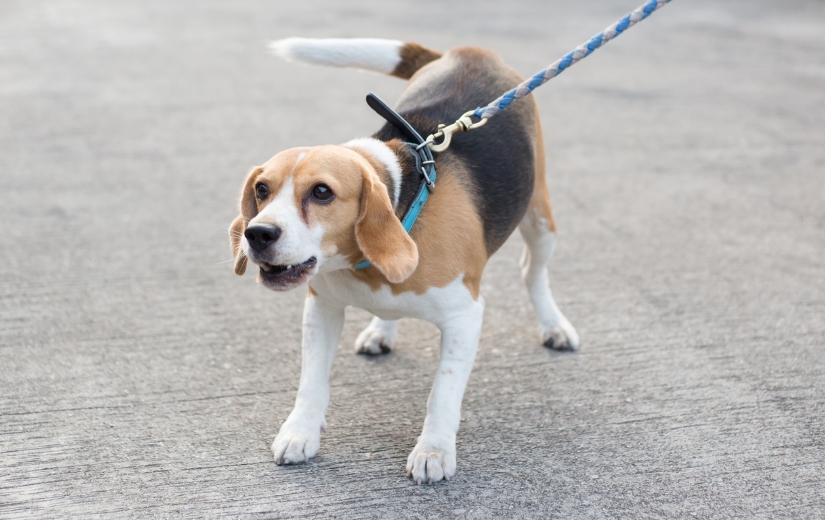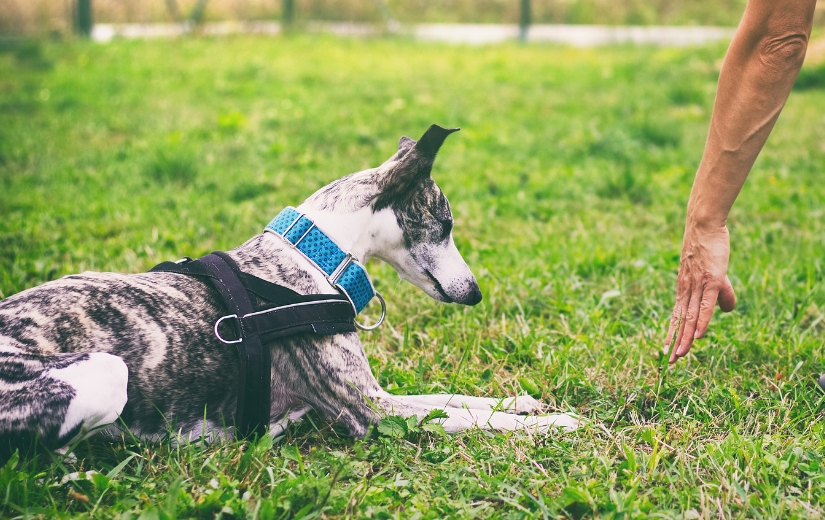When to seek help from a specialized dog trainer

 Getting the right advice is as important as avoiding unqualified advice, especially regarding your reactive or fearful dog. But how do you recognize when to seek help from a specialized dog trainer?
Getting the right advice is as important as avoiding unqualified advice, especially regarding your reactive or fearful dog. But how do you recognize when to seek help from a specialized dog trainer?
Renée Erdman, owner and trainer at Bravo Dog Training, explains when to ask for help, and lists things to consider when choosing a specialized dog trainer.
Let’s get reading!
Recognizing when to seek help from a specialized dog trainer
Dog reactivity is such a common behavioural challenge that my training business is dedicated to dog reactivity and aggression cases.
Recognizing when to seek the help of a specialized dog trainer is crucial for the well-being of your dog and the safety of our communities. However, it can be daunting for pet guardians to find a specialized trainer because pet care is not regulated, and anyone can “seem” like an expert.
In this article, I’m sharing tips on when to reach out for assistance, what to avoid, the credentials to look for in a specialist, and when a veterinary behaviourist might be necessary.

When to seek specialized training help
Sudden behaviour changes, including onset of reactivity, are often an indication that your dog needs to head to the vet for an exam and discussion. Pain is one of the top contributors to reactivity.
If your dog has been cleared for health concerns, you should consider seeking the assistance of a dog trainer who specializes in reactivity if your dog shows any of the following signs:
- Extreme reactivity: If your dog displays aggression towards other dogs or humans and bites have been inflicted, seeking specialized help is essential. This behaviour can escalate further if not addressed promptly.
- Escalating behaviour: If your dog’s reactivity seems to be worsening over time or becoming more frequent, it’s time to consult a specialist.
- Management and prevention is difficult: If your current efforts to manage your dog’s reactivity are proving ineffective, seeking guidance from a professional is a wise step. Continued unsuccessful attempts could lead to frustration for both you and your dog.
- Quality of life is declining: If your dog’s reactivity is severely affecting their quality of life, as well as yours, specialized help can provide relief and improve the overall well-being of your pet.
What to avoid in a trainer
It’s tempting to go online and Google “how to fix dog reactivity”, however, we are not dealing with a washing machine!
Inaccurate advice can be very damaging to your dogs’ well-being, so make sure you avoid:
- Unqualified advice: Avoid relying solely on online forums, social media, or advice from non-professionals. Well-intentioned suggestions might not address your dog’s specific needs and could worsen the situation.
- Punitive methods: Avoid trainers or specialists who rely on punishment training methods. Positive reinforcement-based training is proven to be more effective and humane for addressing reactivity.
- Quick fixes: Be cautious of promises for quick fixes or guaranteed solutions! Behavior modification is a process that requires time, patience, and a tailored approach.

Credentials to seek in a specialist
When seeking out a specialist for dog reactivity, experience is very important; however, education should not be overlooked.
A competent professional will be continually updating their knowledge via seminars and courses.
It can be confusing what to look for exactly, so here are tips on credentials to look for:
- BC SPCA AnimalKind Accredited: Of course, I highly recommend this credential as the auditing process is very extensive and requires specific certifications and experience.
- Certified Applied Animal Behaviorist (CAAB): A CAAB designation shows that the specialist has advanced education and experience in animal behaviour and is qualified to address complex behaviour issues.
- Certified Dog Behavior Consultant (CDBC/ACDBC): Similar to CAAB, this certification signifies specialized expertise in dog behaviour consulting.
- Experience: Seek specialists with a proven track record of successfully working with reactive dogs. Client testimonials and case studies can provide insight into their effectiveness.
When to consider a veterinary behaviourist
A veterinary behaviourist is a specialized veterinarian who has undergone additional training in animal behaviour. Consider consulting a veterinary behaviourist when:
- Medical Causes Are Suspected: If your dog’s reactivity could be influenced by medical issues, such as pain or illness, a veterinary behaviourist can conduct a thorough assessment and collaborate with your regular veterinarian.
- Medication May Be Required: In cases where behaviour modification alone isn’t enough, a veterinary behaviourist can prescribe and manage medications that can help address your dog’s reactivity. This is NOT a crutch, nor should it be a last resort.
- Complex Cases: If your dog’s reactivity is severe, complex, or has not responded to previous interventions, a veterinary behaviourist can provide specialized expertise to develop an effective treatment plan.
You can find board-certified veterinary behaviourists via www.dacvb.org
Recognizing when to seek specialized help for dog reactivity is a critical step in ensuring the safety and well-being of your pet. Timing is key, as addressing reactivity early can prevent escalation and improve your dog’s quality of life (and yours!).
Avoiding unqualified advice and punitive methods is important, and seeking out certified professionals with relevant experience is essential.
In cases where medical factors are involved or more complex issues arise, considering a consultation with a veterinary behaviourist can provide comprehensive and effective solutions.
Remember, it often takes time and a team of compassionate professionals to support you and your dog through this journey!

